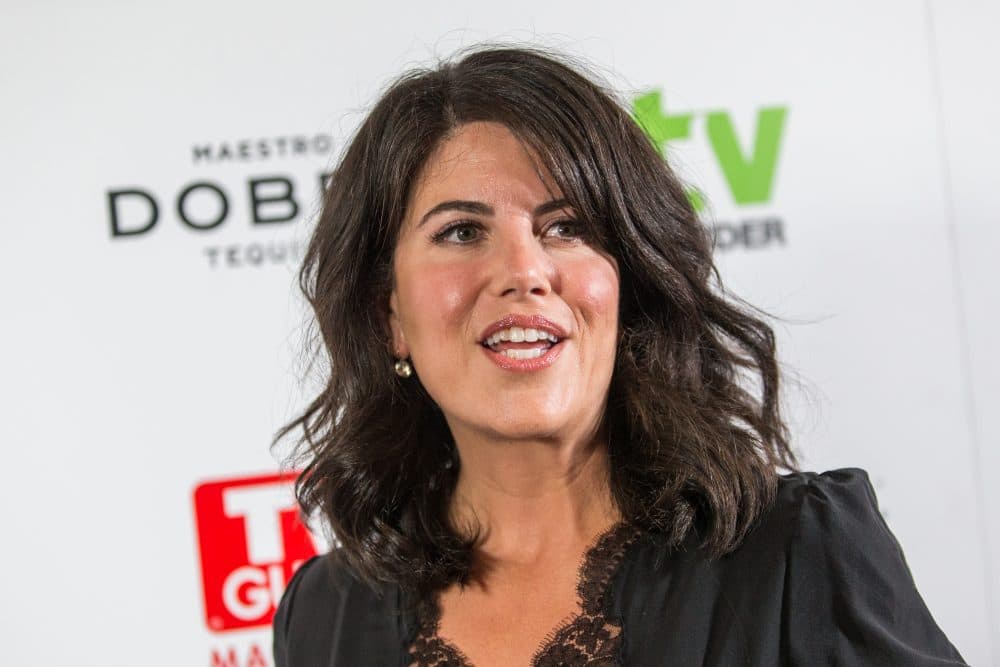Advertisement
Commentary
Women Need To Be Believed — Not Blindly ‘Protected’ As Victims

Monica Lewinsky’s relationship with Bill Clinton was consensual, according to Monica Lewinsky. But not according to commentator Kirsten Powers who, in an NPR interview, expressed doubt that Lewinsky could have consented to sex with the president, given the power differential between them. Or, as a letter writer in the Washington Post asserted, Lewinsky’s belief that she was capable of consent is simply “a testament to the power of denial in cases of victimization.”
Believe the women, we’re commanded — except when their assertions conflict with popular feminist concepts of victimization. Lewinsky, of age at the time of the affair, was not equivocal about her claim that she consented to sex with the president: “I will always remain firm on this point,” she told Vanity Fair.
In her view, she was only abused “in the aftermath, when I was made a scapegoat to protect his powerful position … The Clinton Administration, the special prosecutor’s minions, the political operatives on both sides of the aisle, and the media were able to brand me.” To dismiss her own account of her own experience is to brand her again — as a deluded female who foolishly believes in her own agency.
Are adult women capable of consenting to sex? The ideology of rape culture, which helped shape the "MeToo” movement, embraces a rigid notion of female fragility and victimization.

Consider the case of Grant Neal, expelled by Colorado State University-Pueblo after being accused of sexual assault, despite the insistence of his alleged victim that they were engaged in a consensual relationship: "I'm fine, I wasn’t raped ... our stories are the same and he’s a good guy," she vainly told school officials. They acted instead on a complaint by a third party who apparently disapproved of the relationship. (Neal subsequently sued the school and reached a settlement.)
How did we get here? The realities of sexual violence and workplace harassment have always led some feminists to overreach in seeking legal and political solutions to women’s victimization. The puritanical 19th-century Women’s Christian Temperance Movement was partly shaped by concern about drunkenness and domestic abuse. Late 20th-century anti-porn feminists, concerned with violence against women, sought unconstitutional legal restraints of allegedly pornographic speech, which they equated with actual sexual abuse.
Throughout the 1990s (especially on campus) harassment, abuse, and assault were defined down. Today virtually any woman who was ever subject to a brief, unwanted touch (virtually every woman) can stake her claim as a survivor. The Weinstein scandal, which began with exposes of actionable assaults and workplace harassment, helped spark an indiscriminate panic about unwanted advances or fleeting gropes in social situations, as well as the workplace.
Believe the women, we’re commanded -- except when their assertions conflict with popular feminist concepts of victimization.
But how we got here seems less important than where we’re going.
Are we moving toward over-regulating interpersonal interactions outside the workplace? Will activists demand that the law treat unwanted advances between strangers or acquaintances in a bar the way we treat unwanted advances in the workplace? Will we regress toward a view of adult women as categorical victims, who should not be believed when they claim to have consented to sexual relations that other people consider non-consensual?
Historically the feminist movement has always been torn between advocating legal protections for women and advocating legal equality.
In the mid 20th-century, second wave feminists succeeded in advancing a vision of equality and a belief in female agency. Popular 21st-century feminism, reflected in the current panic, tends to question women’s agency, and in doing so, it questions our claim to equality.
